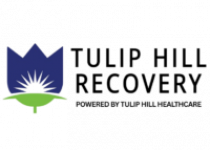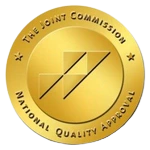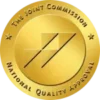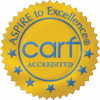What is Rehab Like?
If you or a loved one is thinking about addiction treatment, it’s completely normal to feel anxious, uncertain, or even scared. Taking that first step toward recovery is a major decision, and for many people, the unknown can be just as intimidating as the addiction itself.
That’s why one of the most common questions we hear is: What is rehab like?
Understanding what to expect in rehab can make the process feel less overwhelming.
When you know how the day is structured, what therapies are involved, and how support is provided, you can approach treatment with greater confidence and clarity.
Rehab isn’t just about quitting drugs or alcohol—it’s about learning to live differently, heal from the inside out, and build a life that feels worth staying sober for.
In this guide, we’ll explain exactly what rehab is like—from the first day of detox to group therapy sessions, personalized care plans, and life after treatment.
Whether you’re seeking help for alcohol addiction, drug dependency, or co-occurring mental health challenges, knowing what lies ahead is the first step to taking your life back.
Let’s take the mystery out of rehab—and replace it with knowledge, reassurance, and hope.

What is Rehab Like for Alcohol Addiction?
Alcohol addiction can creep in gradually—what starts as social drinking or stress relief can turn into a dependency that’s hard to break.
If you or someone you love is drinking excessively, struggling to cut back, or continuing to drink despite negative consequences, it may be time to seek help.
Other signs of alcohol addiction include increased tolerance, blackouts, withdrawal symptoms, and neglecting responsibilities in favor of drinking.
So, what is rehab like for alcohol addiction?
At Tulip Hill Recovery, the journey typically begins with medically supervised detox.
This process helps clients safely withdraw from alcohol while managing symptoms like anxiety, tremors, insomnia, and even seizures. This stage is critical—alcohol withdrawal can be dangerous without medical care.
After detox, clients enter a structured treatment program that combines individual therapy, group counseling, and evidence-based approaches like cognitive-behavioral therapy (CBT).
These sessions help individuals uncover the root causes of their addiction, build coping skills, and learn how to live without relying on alcohol.
Many programs also include holistic therapies like mindfulness, exercise, and nutrition support to promote whole-person healing.
Support doesn’t stop there.
Peer groups, 12-step meetings, and family therapy all help reinforce recovery and rebuild relationships. Most importantly, clients are never alone—our team provides continuous encouragement, accountability, and compassionate care.
To learn more about personalized alcohol treatment at Tulip Hill Recovery, visit our Alcohol Addiction Treatment page.
What is Drug Rehab Like?
While alcohol rehab and drug rehab share many similarities, the specifics of drug addiction treatment often depend on the type of substance involved and the challenges it presents.
So, what is rehab like for someone struggling with drug addiction?
At Tulip Hill Recovery, treatment is personalized to meet each client’s needs, especially when it comes to the physical, mental, and emotional toll different substances can take.
Commonly treated substances include opioids (heroin or prescription painkillers), stimulants (like cocaine and methamphetamine), benzodiazepines, inhalants, hallucinogens, and prescription medications like Adderall or Xanax.
Each substance impacts your brain and body differently, which means the detox process and therapeutic approach must be carefully tailored.
In drug rehab, the first phase is typically medical detox, where withdrawal symptoms, ranging from physical pain to emotional distress, are closely monitored and managed.
This step is especially important for substances like opioids and benzos, which can cause severe withdrawal.
After detox, clients move into a structured rehab program that includes individual therapy, group counseling, and behavioral therapies like CBT and DBT.
For many, drug addiction is closely linked with underlying mental conditions such as anxiety, trauma, or depression. That’s why dual diagnosis care is a cornerstone of effective drug rehab.
Clients also receive education about addiction, develop relapse prevention strategies, and engage in holistic therapies to support long-term healing.
The goal isn’t just to stop using, but to rebuild a fulfilling, sober life.
Learn more about our approach and how we treat drug addiction by visiting our Drug Addiction Treatment page.
What Happens in Rehab Day to Day?
One of the biggest questions people have when considering treatment is: What is rehab like on a typical day?
At Tulip Hill Recovery, each day is structured to promote healing, stability, and personal growth while still allowing space for rest, reflection, and connection.
Clients gather for a healthy, nourishing breakfast, which sets the tone for physical wellness and community support.
After breakfast, the morning is typically devoted to group therapy sessions or psychoeducational workshops.
These sessions help clients explore topics like coping skills, relapse prevention, emotional regulation, and the underlying causes of addiction.
Group work also fosters a sense of shared experience, allowing clients to support and learn from one another.
Afternoons are more personalized. Clients may attend individual counseling sessions focused on trauma, co-occurring mental health disorders, or other personal challenges.
These one-on-one meetings are crucial for deep, individualized healing.
Throughout the day, clients also participate in experiential or holistic therapies, which might include yoga, meditation, art therapy, or mindfulness exercises—all of which help manage stress and encourage emotional resilience.
Whether in our Partial Hospitalization Program (PHP) or Intensive Outpatient Program (IOP), every day at Tulip Hill is designed to restore balance, build new habits, and support long-term recovery.
To learn more about our flexible, supportive care options, visit our PHP Program or IOP Program pages.
How Long Does Rehab Last?
A common question people have when considering treatment is how long rehab actually takes.
The answer? It depends.
At Tulip Hill Recovery, the length of treatment is based on several key factors, including the type of substance used, the severity and duration of addiction, underlying health conditions, and whether there are any co-occurring mental health disorders.
While some individuals may benefit from a few weeks of intensive treatment, others may need several months of structured support.
Short-term programs like Intensive Outpatient (IOP) can be a good fit for those with strong support systems at home and less severe addiction histories.
Others may start with a Partial Hospitalization Program (PHP) and gradually step down to lower levels of care over time.
The key to lasting recovery isn’t just the length of time spent in rehab—it’s the personalization of care and the consistency of support.
At Tulip Hill, every client receives an individualized treatment plan tailored to their needs and goals. We focus on progress, not just timelines, and help clients move through levels of care at a pace that sets them up for success.
Even after completing a formal rehab program, many clients choose to engage in aftercare and post-recovery support to maintain momentum and prevent relapse.
To learn more about medical detox services that can precede outpatient rehab, visit our Detox Services page.
Therapy Types Offered During Rehab
-
Cognitive Behavioral Therapy (CBT), Dialectical Behavior Therapy (DBT), and EMDR
These three therapeutic models form the foundation of our clinical work:
- CBT helps clients identify and shift unhealthy thought patterns and behaviors that fuel substance use.
- DBT supports emotional regulation, distress tolerance, and healthier relationships—especially for those with co-occurring mental health challenges.
- EMDR (Eye Movement Desensitization and Reprocessing) is a powerful trauma therapy that allows clients to safely reprocess painful experiences, often at the root of their addiction.
Together, these therapies help clients gain control over their emotions, break destructive cycles, and create space for healing and growth.
-
Family Therapy and Codependency Recovery
Addiction doesn’t just affect the person using—it deeply impacts the people around them.
We offer family therapy to help rebuild trust, improve communication, and support the healing of the family unit.
We also provide specific guidance for codependency recovery, giving loved ones tools to set healthy boundaries and move forward with clarity and compassion.
-
Experiential Therapies: Art, Movement, and Mindfulness
Traditional talk therapy is effective, but healing also happens through expression, creativity, and physical connection. That’s why we integrate experiential therapies such as:
- Art therapy for emotional release and self-discovery
- Movement and somatic practices to reconnect with the body and release tension
- Mindfulness and meditation to reduce anxiety and foster internal peace
These approaches help clients explore new ways to cope, self-reflect, and find joy in recovery.
-
Medication-Assisted Treatment (MAT)
For some clients, Medication-Assisted Treatment plays a key role in stabilizing early recovery, especially for opioid and alcohol use disorders.
We offer MAT when clinically appropriate, using FDA-approved medications like Suboxone, Vivitrol, or buprenorphine as part of a larger treatment plan with therapy, accountability, and support.
MAT is never a one-size-fits-all solution. At Tulip Hill Recovery, we evaluate each client’s needs to ensure that medications are used safely, ethically, and with long-term healing in mind.
-
Support Group Connections in Brentwood, TN
Staying connected is one of the most important aspects of lasting recovery. We encourage clients to participate in local support groups and peer-led programs, including:
- Alcoholics Anonymous (AA)
- Narcotics Anonymous (NA)
- Celebrate Recovery, a Christ-centered 12-step group with a strong presence in Clarksville
- Recovery Dharma, which combines mindfulness and Buddhist principles with addiction recovery
At Tulip Hill Recovery, we help you establish ongoing support so you’re never walking this path alone.
What to Expect from Detox and Early Recovery
Before beginning therapy and deeper healing work, most people need to start with detox—the process of clearing substances from the body.
The key goal of detox is to stabilize your physical and emotional state so you can safely transition into the therapeutic phase of recovery.
During this time, your body adjusts to the absence of drugs or alcohol, which often leads to withdrawal symptoms. These depend on the substance but may include anxiety, nausea, insomnia, sweating, tremors, and mood swings.
For substances like alcohol, opioids, or benzodiazepines, withdrawal can be especially intense—and in some cases, dangerous—without medical supervision.
At Tulip Hill Recovery, we offer medically monitored detox services designed to make this process as safe and comfortable as possible.
Our compassionate clinical team provides 24/7 support, medication management when appropriate, and a calm, structured environment to help ease symptoms.
We also begin to introduce coping tools and emotional support during detox to help you prepare for the next phase of treatment.
Detox is only the beginning—but it’s a crucial first step.
By addressing the physical elements of addiction early on, clients are better equipped to engage in therapy, build new routines, and begin lasting recovery.
Aftercare and Life After Rehab
Recovery doesn’t end when rehab does. In fact, life after treatment is where long-term healing truly begins. One of the most important factors in maintaining sobriety is having the right support systems in place after formal rehab ends.
At Tulip Hill Recovery, we emphasize the importance of aftercare planning for every client.
This can include sober living arrangements, where individuals live in a structured, substance-free environment with accountability and peer support.
We also offer alumni programs, allowing former clients to stay connected, attend group events, and build a recovery-focused community.
Many clients continue with individual therapy, group sessions, or outpatient care after completing our PHP or IOP programs. Ongoing treatment helps reinforce the skills learned in rehab and provides a safety net during life’s inevitable challenges.
We also equip clients with relapse prevention tools, life skills, and strategies for managing stress, relationships, and everyday triggers. Recovery is a lifelong process, and having a strong aftercare plan significantly improves the chances of lasting success.
Get Directions to Tulip Hill Recovery
Staying in the same environment where addiction originally develops can make it harder to break old patterns. Seeking addiction treatment away from home can be one of the best decisions for your long-term recovery.
Benefits of Going to Murfreesboro for Rehab:
- Privacy & anonymity—stepping away from familiar surroundings allows individuals to focus on healing without outside pressures.
- Fewer local triggers—avoiding the same social circles and environments that contributed to substance use can reduce the risk of relapse.
- A fresh start—being in a new setting can shift perspective and help individuals fully commit to the recovery process.
Start Drug and Alcohol Rehab Today at Tulip Hill Recovery
If you or someone you love is struggling with addiction, don’t wait another day to take that first step. At Tulip Hill Recovery, we provide the compassionate care and clinical expertise you need to reclaim your life and start fresh.
At Tulip Hill Recovery in Murfreesboro, we provide compassionate, evidence-based care that helps individuals overcome addiction and rebuild their lives.
Whether you need detox, structured treatment, or ongoing support, our team is here to guide you every step of the way.
Choosing treatment outside of Brentwood can be an opportunity for a fresh start, offering privacy, distance from triggers, and a focused environment for recovery.
Frequently Asked Questions
The right level of care depends on your individual situation and needs.
-
If you require medical supervision for withdrawal, our medically supervised detox is the safest first step.
-
If you need structured, daily support but don’t need 24/7 care, PHP is a good choice — offering intensive therapy during the day without overnight stay.
-
If you need flexibility to balance work, school, or family commitments while getting treatment, IOP provides several sessions per week (often evenings or days) with a focus on relapse prevention, therapy, and peer support.
Yes — Tulip Hill works with most major insurance providers across Tennessee. We offer a free, confidential insurance verification to help you determine your coverage and understand any potential out-of-pocket costs.
If insurance doesn’t cover everything, Tulip Hill offers private pay options and financing/payment plans to help make care accessible/
Families are strongly encouraged to participate. We provide family therapy sessions and education to help loved ones understand addiction, improve communication, rebuild trust, and support long-term recovery.
Tulip Hill provides a comprehensive, holistic approach including:
- Individual therapy (e.g., Cognitive Behavioral Therapy, Dialectical Behavior Therapy) Tulip Hill Recovery
- Group therapy for peer support and shared experiences Tulip Hill Recovery
- Family therapy to rebuild relationships and heal family dynamics Tulip Hill Recovery
- Trauma-informed care (including EMDR therapy for trauma/PTSD) Tulip Hill Recovery
- Holistic wellness supports, such as mindfulness, meditation, yoga, nutrition counseling, and experiential activities to support emotional and physical health. Tulip Hill Recovery
What to Expect at Our Murfreesboro Addiction Treatment Center | Tulip Hill Recovery
Entering rehab can feel intimidating, especially if you don’t know what to expect. At Tulip Hill Recovery in Murfreesboro, TN, treatment is structured, supportive, and focused on long-term healing.
The process typically begins with a clinical assessment and, if necessary, medically supervised detox. After stabilization, clients participate in individual therapy, group counseling, relapse prevention planning, and evidence-based treatments such as CBT and DBT.
A typical day includes scheduled therapy sessions, skill-building activities, wellness support, and structured programming designed to promote accountability and emotional growth.
Rehab is not about punishment — it is about rebuilding stability, understanding triggers, and developing healthier coping strategies.
Our Murfreesboro rehab center provides a safe, confidential environment where clients receive professional medical and therapeutic care tailored to their needs.
Admissions specialists are available to answer questions and guide you through the process.
The content available on Tulip Hill Recovery pages is designed to provide educational information related to addiction, detoxification, rehabilitation, and recovery. This information should not be interpreted as professional medical advice or treatment recommendations.
Addiction treatment is highly individualized. Detox and rehab needs vary significantly based on health history, substance use patterns, and mental health considerations. Information provided is general and may not apply to all individuals.
If an emergency arises — such as overdose, severe withdrawal symptoms, or immediate danger — call 911 without delay. Online resources are not a substitute for emergency medical care.
Medical detox should always be conducted under professional supervision. Attempting detox without medical oversight can be dangerous.
Insurance information is provided as general guidance only. Coverage varies by plan and carrier. Tulip Hill Recovery encourages all individuals to verify benefits directly with admissions staff.
Recovery outcomes are not guaranteed. Treatment effectiveness depends on many factors including engagement, clinical needs, and aftercare support.
References to external resources do not imply endorsement. Tulip Hill Recovery is not responsible for third-party content.
Website use does not establish a provider-patient relationship.
All content published on Tulip Hill Recovery website pages is provided for informational purposes only and should not be interpreted as medical, psychological, or legal advice. This information is not intended to diagnose, treat, cure, or prevent any disease or condition and should not replace consultation with licensed healthcare professionals.
Addiction is a chronic, relapsing medical condition that requires individualized care. Treatment approaches, detox protocols, and rehabilitation services vary depending on numerous factors unique to each individual. No information on this website should be relied upon to make treatment decisions without professional guidance.
If you are experiencing an emergency situation, including overdose, withdrawal complications, suicidal ideation, or immediate risk to yourself or others, call 911 immediately. Tulip Hill Recovery does not provide emergency medical services online or via website communication.
Never attempt to discontinue substance use or begin detox without proper medical supervision. Withdrawal can cause serious medical complications. Any information regarding detoxification is general in nature and does not substitute for physician-directed care.
Insurance information presented on this website is intended solely to assist users in understanding potential coverage options. Coverage is subject to verification, medical necessity determinations, and policy limitations. Tulip Hill Recovery encourages direct contact with our admissions specialists to confirm benefits and eligibility.
We do not guarantee treatment outcomes, length of stay, insurance approvals, or placement availability. Outcomes depend on numerous clinical and personal factors.
External links are provided for convenience and informational purposes only. Tulip Hill Recovery assumes no responsibility for third-party content or practices.
Use of this website does not establish a doctor-patient or therapist-patient relationship. Recovery requires professional support and individualized care.
Start Your Journey to Healing Today

Call or message us

Free assessment
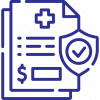
Insurance check

Choose a start date
Get Family Support Now
Supporting Families Through Recovery
We understand addiction affects the whole family. Our comprehensive family program helps rebuild trust and restore relationships.
Weekly Family Therapy Sessions
Educational Workshops
Support Groups
Communication Skills Training
 |
Medically Reviewed By:
Board-Certified Psychiatrist and Addictionologist
|
 |
Clinically Reviewed By:
Board Certified Clinical Social Worker
|
Our Verifications & Affiliations
Yes, Your Insurance Covers Detox and Rehab Treatment.
Get Family Support Now
Supporting Families Through Recovery
We understand addiction affects the whole family. Our comprehensive family program helps rebuild trust and restore relationships.
Weekly Family Therapy Sessions
Educational Workshops
Support Groups
Communication Skills Training
